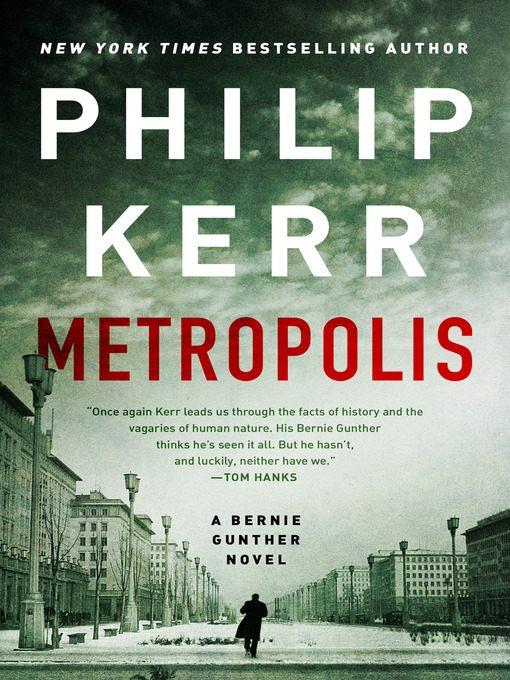
Metropolis
Bernie Gunther Series, Book 14
کتاب های مرتبط
- اطلاعات
- نقد و بررسی
- دیدگاه کاربران
نقد و بررسی

February 1, 2019
Kerr's final Bernie Gunther novel takes us back to 1928 and the beloved character's beginnings on Berlin's Murder Commission.Drafted from Vice, Gunther finds himself on the trail of a prostitute killer who scalps his victims and then a serial murderer who is targeting disabled war veterans. Partly in desperation as the number of victims rises and partly to test a new sleuthing concept devised by his superior, Bernhard Weiss, Gunther agrees to go undercover posing as a klutz, or homeless veteran. His nerves are eased by his unexpected romance with a female makeup artist helping him with his street look. But with Nazism on the rise, Berlin is simmering with violence, cruelty, lies, and casual anti-Semitism. "Everyone who was sympathetic to the Nazis believed that a Jew was just a communist with a big nose and a gold watch," says Gunther in his first-person narration, referring to the supposed red ties of the mensch-y Weiss. Still, Gunther is lifted by his devotion to his job, perfect summer days that are "almost worthy of a short poem by Goethe," and bold new cultural directions. He comes into contact with Lotte Lenya (on a break from rehearsing The Threepenny Opera), artist George Grosz (drawing murder victims on public display in the police morgue, "Berlin's showhouse for the dead"), and scriptwriter Thea von Harbou, wife of Metropolis director Fritz Lang. With its lessons for the Trump era, this book is plenty timely. But completed shortly before the author's death, it is also one of Kerr's most congenial, beautifully controlled, and entertaining works. The banter is priceless.Going against the grain--as usual--by writing an origin novel as his swan song, Kerr leaves his fans happy.
COPYRIGHT(2019) Kirkus Reviews, ALL RIGHTS RESERVED.

Starred review from April 15, 2019
Fittingly, if sadly, Kerr's final, posthumously published Bernie Gunther novel returns the Berlin detective to his beginnings. It's 1928, and Bernie has just been promoted to the prestigious Murder Commission. Germany is just starting to emerge from the worst of the post-WWI inflation crisis, and, while the fabled decadence of the Weimar Republic remains in flower, the repressive Nazi movement is gaining strength. In the middle of that cauldron of opposites, Bernie finds himself investigating two serial killers?one who preys on prostitutes and another who targets the many disabled veterans reduced to panhandling on Berlin's streets. Or could there be only one killer? And, worse, could he be a cop, as some witnesses have suggested? With the help of a makeup artist working on the production of a new avant-garde musical, The Threepenny Opera, Bernie goes undercover as a limbless veteran to find the answers. Harkening back to the first two novels in the series, March Violets (1990) and The Pale Criminal (1991), both set a bit later in the Weimar era, Kerr displays again his special talent for reflecting individual depravities against the broad canvas of a society collapsing upon itself. It's fascinating to see a younger Bernie here, with the makings of the melancholic wiseass and world-class cynic he will soon become, but still just a tad vulnerable (and still learning to hold his liquor). The Bernie Gunther series is one of the great triumphs of modern noir, and it will be sorely missed.(Reprinted with permission of Booklist, copyright 2019, American Library Association.)

November 15, 2018
Star of Kerr's eponymous New York Times best-selling series, Bernie Gunther became a police investigator in Berlin and then a private eye after serving in World War I's trenches. But how did he get his start? Here we see Bernie in his early twenties, struggling through his first weeks on the Berlin Murder Squad to solve a string of particularly vicious murders claiming the most vulnerablewounded soldiers and prostitutes. A sad note: Kerr passed away in March 2018.
Copyright 2018 Library Journal, LLC Used with permission.

























دیدگاه کاربران